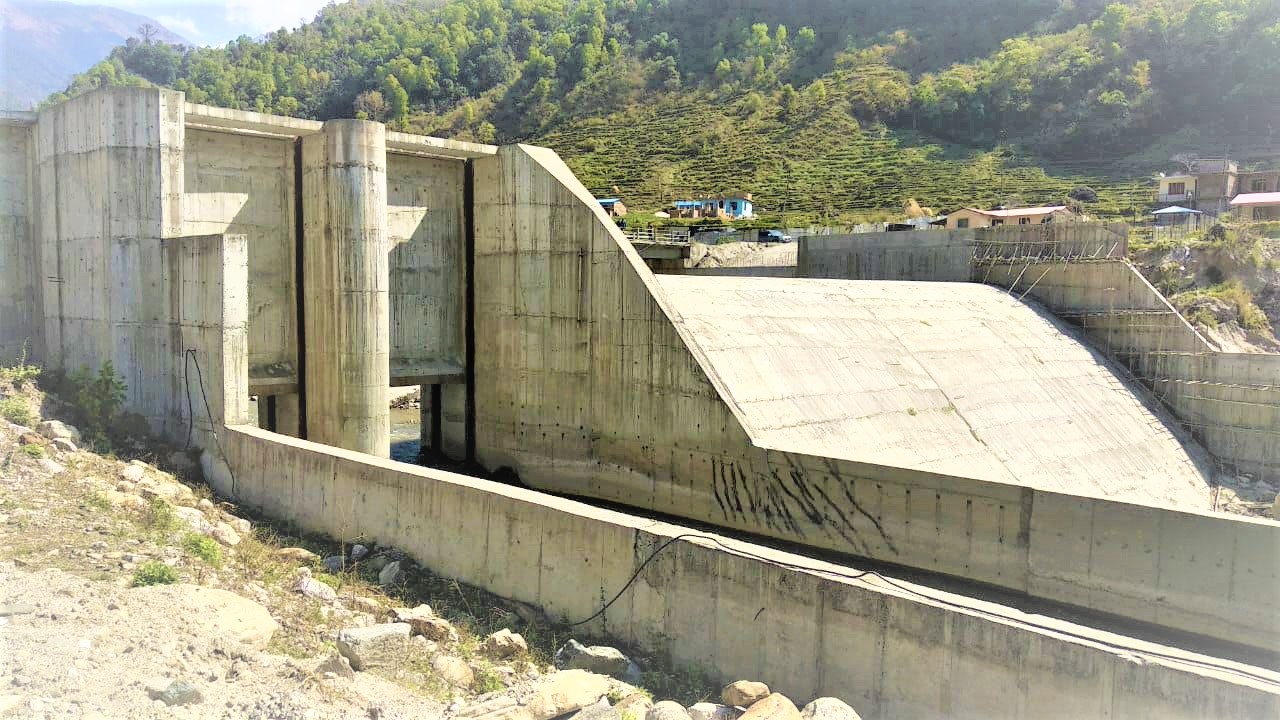
The 27-megawatt Dordikhola Hydroelectricity Project under construction on the Dordi River in Lamjung is expected to start generating electricity within the current fiscal year.
The project, being constructed by Himalayan Power Partner Ltd. (HPPL), is preparing to start generating electricity by the middle of July. To meet this goal, the dam site, descender and intake were tested on Thursday. “The tunnel, penstock pipes and electromechanical materials including runners will also be tested soon,” said Engineer Deepak Gyawali.

According to the project, testing on all the structures will last for three days. “We started testing from the upper area because electromechanical work on the powerhouse is nearly complete,” Gyawali added. “We aim to complete testing by May and begin generating electricity commercially from mid-July.”
Gyawali informed that the hydel project had three Francis turbines with a capacity of nine megawatts each. Electricity will be generated at the powerhouse located on the bank of the Marsyangdi River at Ramchowkbesi. The produced power will be transmitted to the 132-kilovolt substation under construction at Udipur at a distance of 1.2 kilometres from the powerhouse.

The project will generate 147.69 gigawatts of electricity per hour. Accounting for loss and leakage, the project expects to sell 142.31 gigawatts of electricity per hour. The gross head of the project is 212 metres. The project has signed a power purchase agreement with the Nepal Electricity Authority to sell electricity at a rate of Rs. 8.40 per unit in the dry season and Rs. 4.80 per unit in the rainy season.
According to Guru Prasad Dhakal, executive director of the HPPL, testing began after the completion of the construction of the dam, tunnel, descender and intake.
The project has requested the people living on the banks of the Dordi River to be alert during the testing period. It has informed the citizens through the rural municipality office and the police.
Work on the project began in 2014 and should have been completed in 2017. “But the earthquake and border closure slowed our pace,” Dhakal said.
The total cost of the project is Rs. 4.23 billion. The NRN Investment Limited, established by non-residential Nepalis, will cover 35.7 per cent of the cost, IME Group will cover 34.3 per cent of the cost and the remaining 30 per cent will come from local investment. Led by Prime Commercial Bank, eight banks and financial institutions will have 75 per cent loan and HPPL will have 35 per cent equity investment.